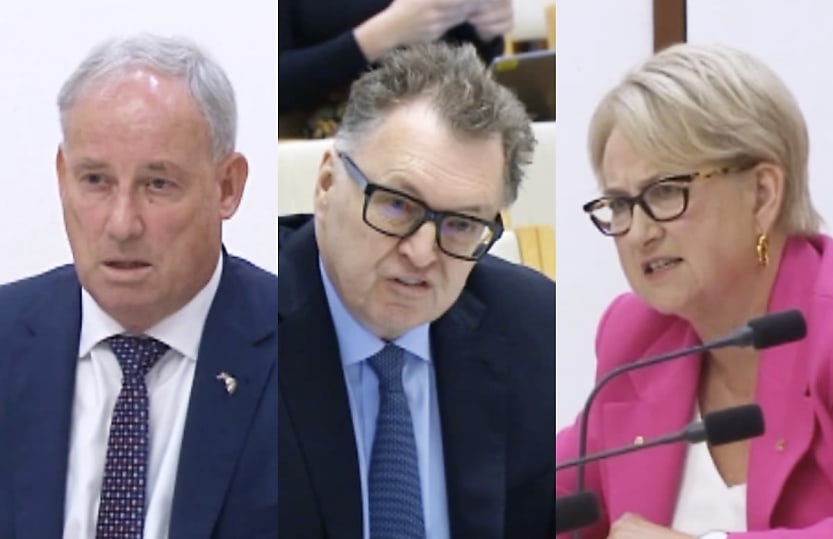‘No confidence’ in PwC’s ethics, senators say

Members of the inquiry into consulting services unleashed on the firm for failing to produce a key report on the tax leaks scandal.
Senators say they have “no confidence” and are “worried” about PwC’s ethical practices as it continues to withhold a global report on its misuse of government information from the inquiry into consulting services.
PwC Australia CEO Kevin Burrowes told the Finance and Public Administration Committee on Friday that PwC International had refused to share the document which detailed findings from an independent review finalised in September.
Senator Richard Colbeck, who chairs the inquiry, said the lack of transparency undermined the firm's efforts to right its wrongs in the aftermath of the tax leaks scandal.
“I can't in any good conscience acknowledge that I have confidence when your organisation – and you are part of that organisation – is thumbing their nose at our Parliament,” Senator Colbeck said.
“This should be released as a demonstration of the so-called ‘new leaf’ that you’re trying to project … but how do we have any confidence in the things you say that you’re doing when we are treated with disrespect?”
PwC International commissioned the report from law firm Linklaters in May.
It found “no evidence” of PwC personnel outside of Australia misusing confidential information for commercial gain but that six international partners should have “raised questions as to whether the information was confidential”, according to a statement from PwC in September.
When Mr Burrowes appeared in front of the committee in October, he admitted no one from PwC Australia was privy to its details. PwC also withheld the report from the TPB and ATO, the regulators confirmed on Friday.
ATO second commissioner Jeremy Hirschhorn told the committee he had “no power to compel the production of that report” due to legal professional privilege. He was also unaware of the identities of PwC’s “Dirty Six” partners.
“We share the frustrations of this committee that an organisation which claims to be cooperative is deliberately hiding behind the difference between their local firm and the international firm,” Mr Hirschhorn said.
Mr Colbeck said if the firm continued to withhold the document, the committee would not hold back when issuing a report of its own to Parliament. “Your organisation internationally needs to understand that. And we're very happy to share the love internationally in respect of what we say in our report.”
“We are deadly serious about this,” he said.
Senator Barbara Pocock called Mr Burrowes a “patsy” and said the firm’s failure to provide a full account of its partners’ involvement in the tax scandal was “running sore of dishonesty”.
“We are being treated like mushrooms here. PwC is disdaining Parliament, and a year into the discovery of this scandal, you come here today as a representative for PwC and you say ‘no information sharing, we will not tell you what happened’,” she said.
Ms Pocock also questioned other measures taken by PwC in the last year as a means of tightening the firm’s internal ethics controls.
Mr Burrowes had told the Senate in his opening remarks that “a lot has been done already” to make “far-reaching and significant structural changes” to the firm, including “new balanced scorecards” on risks and ethics, which measured firmwide and individual performance with an “emphasis on ethics and integrity”.
Partners had also been banned from using controversial income-splitting Everett assignments to minimise tax liabilities, the firm’s chief risk officer Jan McCahey confirmed.
But according to Ms Pocock, balanced scorecards were a decades-old ethics framework pioneered by former CEO Luke Sayers. “I am worried about what’s actually going on in terms of ethical practice,” she said.
“Give us something that’s real. Don’t come here and tell us how you have a new managerial device – one that was used for all of the nine years that Luke Sayers was running the show where all of the rot happened. I’m really worried about what you’re doing.”
About the author






